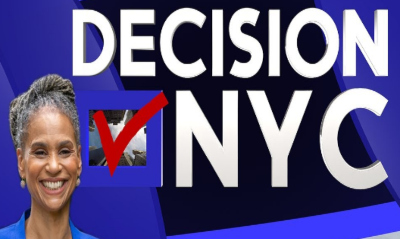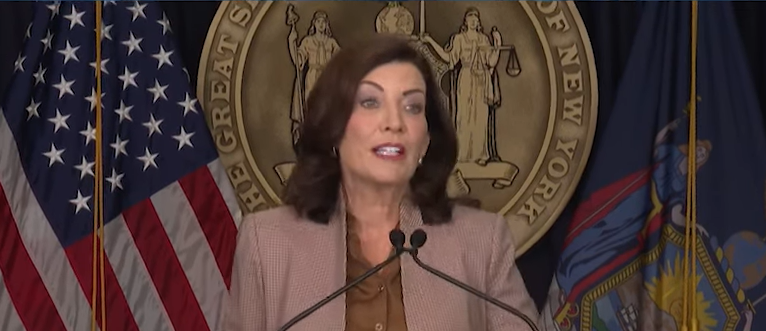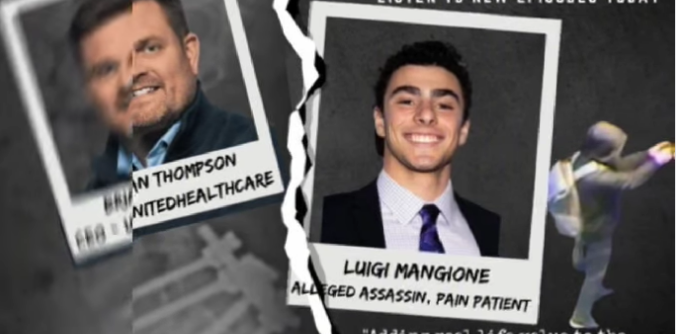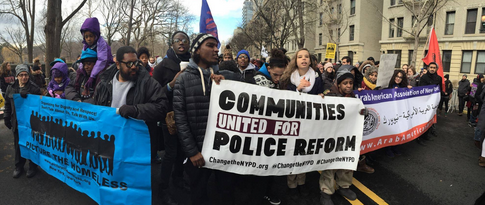Photos: YouTube\Maya For Mayor
Professor Maya Wiley candidate for Mayor of New York City.
The next mayor of New York City has a lot of work to do to heal this city from all of its many ailments.
The COVID-19 pandemic, and the massive police protests following the police murder of George Floyd, has further exposed the economic and racial disparities that Black people face in New York City.
New Yorkers from ethnic minority communities have been overlooked and, especially, in the case of Blacks, targeted for economic and racial oppression. It is not an accident that Black New Yorkers are primary casualties of COVID-19–just as we are the main victims of police brutality and police murder.
Black people and Latinos, need the next mayor of New York City to be someone who will fight for economic equity and racial justice for us, in this precarious moment.
Because of longstanding systemic racism, the Black and Latino communities have suffered from high incidents of: failing schools, health problems, joblessness, homelessness, racial policing, and mass incarceration. For decades, our people have been given empty promises by careerist-minded politicians who have failed to fight hard for tangible change, never mind delivering on them.
Who in the current crop of mayoral candidates can we really trust now to fight smartly and aggressively for the pressing issues we face? Who among them has a track record that bodes well for best representing the concerns of Black and Latino New Yorkers?
Maya Wiley seems to be that choice.
Wiley, a lawyer and university professor, has a known background as a civil rights activist who has worked for the NAACP Legal Defense and Educational Fund, the American Civil Liberties Union and the Open Society Institute.
Professor Wiley’s platform plans have been endorsed by progressives like New York Rep. Alexandria Ocasio-Cortez, former HUD Secretary and presidential candidate Julian Castro and Massachusetts Senator Elizabeth Warren.
Wiley’s progressive platform addresses many systemic problems that plague our communities. Here are some examples.
2020 was the year of COVID-19 and the disparate health consequences Black America has endured has fully exposed the current inadequacies within the so-called healthcare system. The pandemic has revealed the urgency to create better healthcare institutions, infrastructure, and policies to alleviate the suffering of the most vulnerable. We desperately need better and more community clinics, hospitals, and the like.
In her health plan, Wiley outlines several critical things including: (1) Developing Community Care Centers in all five boroughs. (2) Ensure these centers serve 300,000 New Yorkers in the program’s first year of implementation and nearly 1 million people annually. (3) Expanding training for family\informal caregivers. (4) Pushing for fair pay for homecare workers. (5) Targeting child poverty. (6) Establishing care system for needy families. (7) Further empowering families in healthcare decisions.
2020 was a flashpoint year for addressing America’s racial policing problems given the police killings and murders of so many Black people including the high-profile murders of George Floyd and Breonna Taylor. In New York City, the NYPD’s response to police protests was brutally documented and even New York Attorney General Letitia James’s final report on the police response during the protests confirmed this.
The issue of racial policing inside the NYPD–in one of America’s most progressive cities–is an atrocious reality that demands drastic and immediate attention.
Wiley, who served a stint on the Civilian Complaint Review Board, has outlined some of her plans to fix the problems with police violence, accountability and transparency including: (1) Enhance prosecution of criminal cops while ending funding of their legal defense. (2) Cut $1 billion from NYPD budget and reallocate those resources to address responding to mental health crises. (3) Renegotiate PBA contract which protects cop’s bad behavior. (4) Strengthen the CCRB. (4) Overhaul Police Patrol Guide. (5) Remove NYPD from mental health and crisis management. (6) Create a Commission on Public Safety Oversight and Accountability. (7) Rewrite the rules of policing to reimagine policing.
Homelessness and affordable housing are amongst the most serious issues facing Blacks and Latinos in New York City. Wiley’s proposals here include: (1) New Yorkers making under $54,000 (family of three) pay no more than 30% of their income on rent. (2) Investing $2 billion in NYCHA. (3) Expanding City’s Rental Assistance Program. (4) Creating Community Land Bank. (5) Creating more affordable housing.
What about Wiley’s economic plan?
In her “New Deal New York” proposals, she has promised what she calls a “Works Progress Administration-style infrastructure, stimulus, and jobs program,” Wiley has pledged to invest $10 billion and create 100,000 jobs, to those working as childcare workers, librarians, home healthcare workers, construction workers, artists and manufacturers. She has committed to prioritizing minority communities in the creation of these jobs, which is vitally need given the economic hardship which has increased over the last year.
Wiley also has a solid plan for helping minority small businesses. These include: (1) Provide $100 million in City-level regulatory relief to individual small businesses. (2) Launch $30 million Small Business Emergency Grant Program and prioritize those funds to the hardest hit zip codes and most distressed industries. (3) Expand City’s commitment to MWBEs, especially under-represented Black- and Latino-owned businesses. (4) Embrace street vendors as New York City’s smallest businesses. (5) Appoint a Chief Small Business Officer (CSBO) in the Mayor’s Office. (6) Prioritize local manufacturing businesses as suppliers for New Deal New York projects.
However, we do have a major issue to raise here with Maya Wiley.
Out of about $22.5 billion that New York City spent with vendors last year, Black and Latino owned businesses got less than 1% of the lucrative contracts. This is criminal in a city where the two communities make up about 52% of the population. Will a mayor Wiley pledge to end this historical exclusion? By ending such discrimination mayors Marion Barry and Maynard Jackson were able to create a sizable Black middle class in Washington, D.C, and Atlanta, respectively.
Where is Wiley on education?
Wiley’s education plan points to the unequal under-investment in education. She has promised that she will reinvest in education by: (1) Allocating $250 million dollars to hire 2500 new teachers to shrink class sizes. (2) Reallocate $450 million NYPD budget for school policing to support the mental health and social-emotional needs of NYC’s students. (3) Provide universal broadband access and increase access to technology for all students. (4) Remove school safety role from the NYPD. (5) Create racially integrated schools. (6) Creating more funding for the arts.
Across the board, Professor Maya Wiley has an impressive resume and track record of service especially as a civil rights advocate. Adding that with her progressive policies, Wiley would very likely be the kind of mayor that would make New York City a better more just place for everyone to live, including Black and Latino New Yorkers.
Therefore, the Black Star News endorses Professor Maya Wiley in her candidacy to be the next Mayor of New York City.







